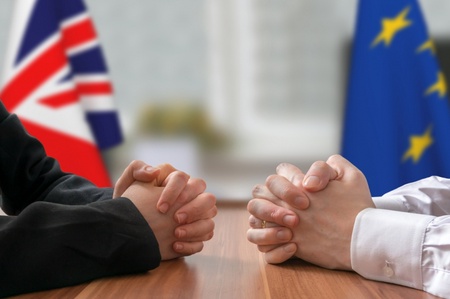Why is it that we struggle not to feel emotional about Brexit? This happens whatever your views are. We voted on June 2016, handed in our notice on March 2017, we plan to leave in March 2019 and then start the transition period. Simple? Since the vote our emotions have been driven back and forth, with highs and lows so no wonder we feel emotional about it. Sometimes it all looks very promising, then the next moment it turns gloomy. Uncertainty piles up, the UK government is in a state of in-fighting and the EU does not make it easy because they were against it in the first place.
Every time the story appears in the news someone is seriously affected. Just think of the Scottish fishermen that seem to have gained nothing from leaving the EU. Whatever emotions one had in June 2016 have been rolled over and distorted several times since then and yet there is still no light at the end of the tunnel. To make it even harder, once negotiations are completed, the deal will need to be reviewed and a vote will take place in parliament, which may throw a spanner into the works yet again. Ultimately, by the time we leave we may not recognise the result as the outcome that was voted for.
What’s really wrong with Brexit and the negotiations being carried out, is that there seems to be no closure as it lingers on. After normal elections some are disappointed, while others celebrate, but everyone gets used to it in the end, with Brexit the rollercoaster never seems to end. The party that seems to have all the power in the negotiations and can afford the ‘no deal’ outcome, seems to be the EU. Regardless of the elements being negotiated, waiting so long to learn what’s going to happen has a cost and that appears to be overlooked. However, everyone is paying for it.
Professor Ignacio Canales is a Professor of Management at the University of Aberdeen Business School. Previously he held posts as Professor, Reader and Senior Lecturer in Strategy at the Adam Smith Business School in the University of Glasgow and at the University of St Andrews. His research interests in strategy process focuses on asymmetric relationships between managers as they interact to formulate and implement strategy.


